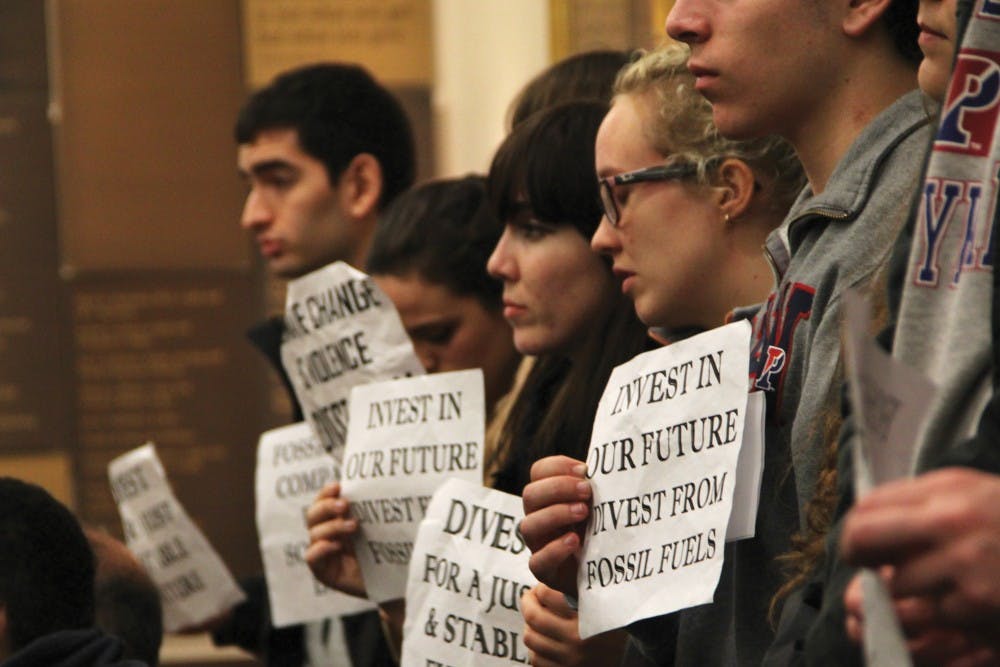
Graduate School of Education professor Jonathan Zimmerman said that the student protests criticizing the administration — like for not divesting from fossil fuels — are not necessarily the most effective.
Credit: Carson KahoePenn’s administration is no stranger to protests. Just last week, students from Fossil Free Penn staged a sit-in outside Penn President Amy Gutmann’s office to urge transparency in its reasons for declining to divest from fossil fuels. But student protests criticizing the administration are not necessarily the most effective, according to Graduate School of Education professor Jonathan Zimmerman.
Zimmerman is the author of “Campus Politics: What Everyone Needs to Know,” which discusses college student protests. In his book, Zimmerman notes how universities have shifted over time from being faculty-controlled to administration-controlled. Since current campus protests are taking place in this highly administrative environment, it makes sense to him that student protests would be oriented toward the administration. Still, he raises a question about the unintended consequences of this type of protest.
“Doesn’t that very critique empower the administration and continue the trend toward giving more authority to the administration?” he said.
During the week of the presidential election, some Penn students were upset about the timing and nature of the administration’s response to both the election and the racist GroupMe incident.
“Why is it so important what the administration does?” Zimmerman said. He added that he does not know the answer, but discussion of this question illuminates some interesting points.
Zimmerman finds it “remarkable” that students have invested so much in the administration.
“Denouncing the administration gets you into a cycle, and that’s the cycle of current campus politics,” he said.
He calls this recurring cycle “investment and disappointment,” explaining that when students ask the administration for something — and inevitably the administration falls short — they often ask for more administration in some form to compensate for this shortcoming. “Invest in the administration, get disappointed, invest more, get disappointed,” he said.
Zimmerman clarified that he is a proponent of student protest.
“Should students find something that they disagree with. I think protests are absolutely critical,” he said. However, he urges students to think about the implications of administration-focused protests on college campuses.
When asked what he would do if he were a protester, Zimmerman said he would “be protesting outside Trump Tower and would be asking Trump to denounce racist acts that have been done in his name,” instead of spending time and energy being concerned about what Penn President Amy Gutmann says.
He also does not believe that Penn’s administration should denounce Trump. He fears that the stigmatization of the president-elect will make it even harder for people to communicate across differences and have important conversations. According to Zimmerman, if the institution were to officially denounce one of the candidates, it would make those conversations more difficult.
“If a student wants to say that Trump supporters are racist, they should be absolutely free to do so,” he said. “But I don’t think the institution should adopt that perspective officially.”
The Daily Pennsylvanian is an independent, student-run newspaper. Please consider making a donation to support the coverage that shapes the University. Your generosity ensures a future of strong journalism at Penn.
Donate




